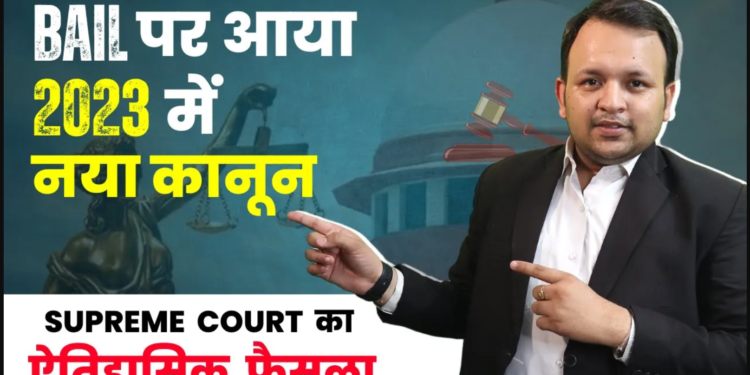Introduction:
Securing bail is a common legal recourse, but what happens if the circumstances change during an ongoing investigation, leading to the imposition of new charges? Can bail granted under one set of allegations be cancelled if new, more severe offenses are introduced? In a recent landmark judgment, the Supreme Court of India addressed this issue, providing valuable insights into the legal framework surrounding anticipatory bail.
Let’s dive into the case, to get insights into the said judgment;
Ms. X v. State of Maharashtra, 2023, Supreme Court
If still there lies any doubt, feel free to contact us through; https://thelegalshots.com/legal-opinion/
Brief facts of the case:
The case revolves around a complaint filed by the prosecutrix, alleging rape and betrayal by the accused, who had promised her a business opportunity. Initially, the FIR was registered under Section 354 of the Indian Penal Code (IPC) for sexual harassment and Section 506 for criminal intimidation. The accused was arrested soon after.
The accused sought regular bail before the magistrate court, contending that the complainant had falsely misrepresented him. The magistrate granted bail based on the initial charges.
However, the complainant later reported to higher police authorities that the rape allegation had not been addressed in the FIR. Section 354 pertains to sexual harassment, while Section 376 deals with punishment for rape. The police subsequently added Section 376 to the FIR, resulting in the cancellation of the accused’s bail.
The accused, dissatisfied with this turn of events, approached the Bombay High Court for anticipatory bail under Section 438 of the Code of Criminal Procedure (CrPC). He argued that the allegations against him were misconstrued and that any actions had occurred with mutual consent. The High Court granted anticipatory bail, finding the offences not too grave.
The complainant, aggrieved by the High Court’s decision, eventually approached the Supreme Court, presenting two main arguments.
- First, she contended that the High Court’s judgment regarding Section 438 of the CrPC was unfair.
- Second, she argued that if new offenses or sections are added during an investigation, the accused can be arrested.
The Supreme Court addressed the first argument by emphasizing the importance of examining the nature and gravity of the offense when considering anticipatory bail. Several aspects should be considered:
- The nature and gravity of the offense.
- Determining whether the offence is hypothetical or factual, or if it has been fabricated to tarnish an individual’s reputation.
- Ensuring that after bail is granted, the accused does not threaten the victim or witnesses and refrains from tampering with evidence.
The Court then turned to the second argument, referencing the landmark judgment in Pradeep Ram v. State of Jharkhand, 2019.
Final judgment:
The Supreme Court acknowledged that Section 376, IPC, is a grave offense and criticized the High Court for its leniency in such cases. The Court emphasized that if new charges or sections are added during the investigation and these charges are serious, bail granted earlier can be cancelled, leading to the arrest of the accused.
Thus, “The addition of a serious offense can be a circumstance where a Court can direct that the accused be arrested and committed to custody even though an order of bail was earlier granted.”
Conclusion:
In this significant case, the Supreme Court clarified that anticipatory bail can be cancelled if new offenses or sections are added during the investigation. Furthermore, it reiterated the importance of assessing the nature and gravity of the offense when considering anticipatory bail applications. This decision provides guidance on the nuances of bail applications, ensuring that justice is served while protecting the rights of both complainants and the accused in the legal process.
To understand more such complex law in simple ways, stay connected with www.thelegalshots.com .
If doubts still persist, contact our Legal Experts at- https://thelegalshots.com/legal-opinion/




